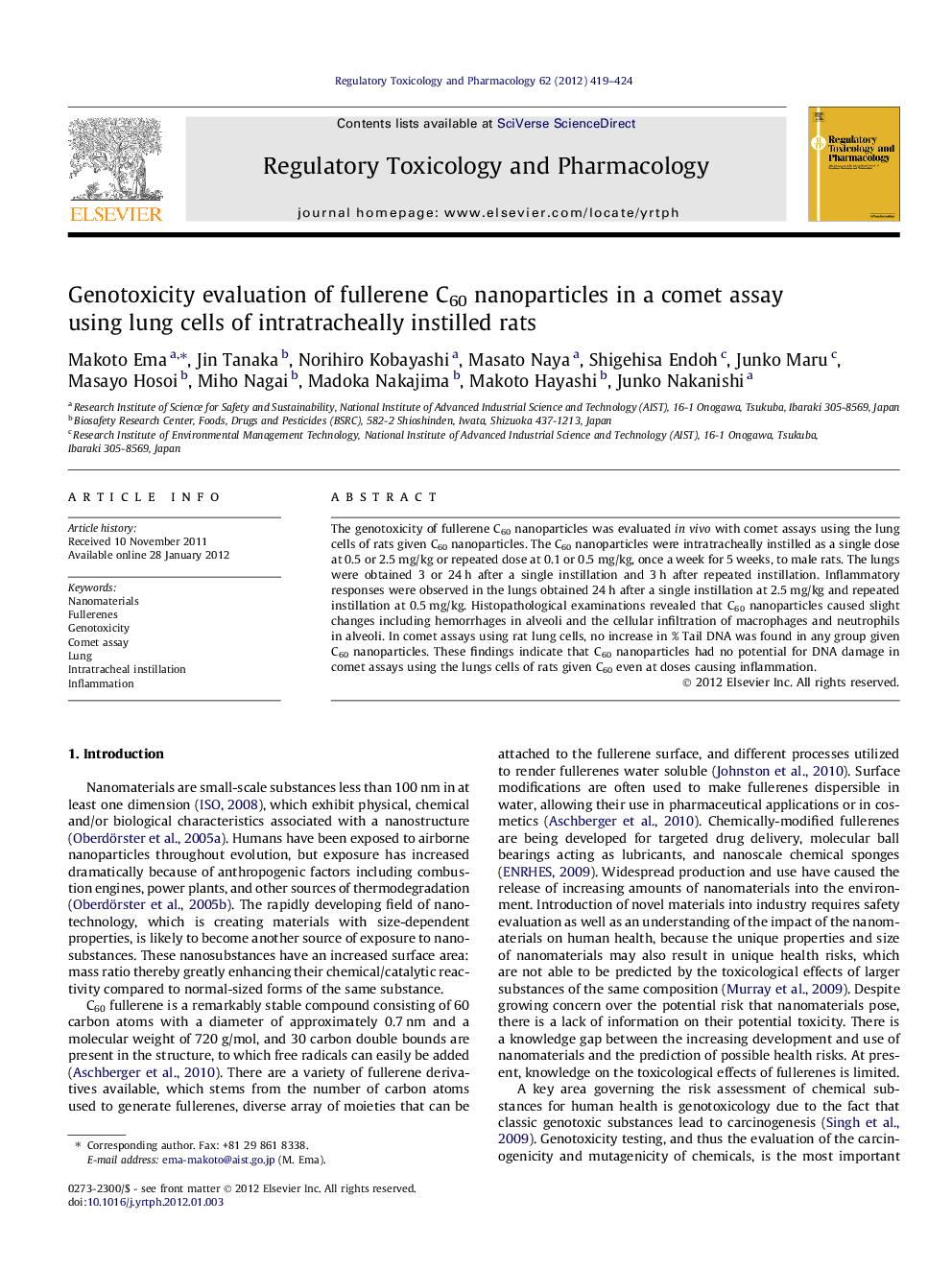| Article ID | Journal | Published Year | Pages | File Type |
|---|---|---|---|---|
| 2592386 | Regulatory Toxicology and Pharmacology | 2012 | 6 Pages |
The genotoxicity of fullerene C60 nanoparticles was evaluated in vivo with comet assays using the lung cells of rats given C60 nanoparticles. The C60 nanoparticles were intratracheally instilled as a single dose at 0.5 or 2.5 mg/kg or repeated dose at 0.1 or 0.5 mg/kg, once a week for 5 weeks, to male rats. The lungs were obtained 3 or 24 h after a single instillation and 3 h after repeated instillation. Inflammatory responses were observed in the lungs obtained 24 h after a single instillation at 2.5 mg/kg and repeated instillation at 0.5 mg/kg. Histopathological examinations revealed that C60 nanoparticles caused slight changes including hemorrhages in alveoli and the cellular infiltration of macrophages and neutrophils in alveoli. In comet assays using rat lung cells, no increase in % Tail DNA was found in any group given C60 nanoparticles. These findings indicate that C60 nanoparticles had no potential for DNA damage in comet assays using the lungs cells of rats given C60 even at doses causing inflammation.
► A key area governing the risk assessment of chemicals is genotoxicity. ► The C60 were intratracheally instilled as a single or repeated dose to rats. ► Inflammatory responses were observed in the lungs of rats given C60. ► Comet assays revealed no DNA damage in the lungs of rats given C60. ► These provide a primary characterization of the potential hazards of C60.
